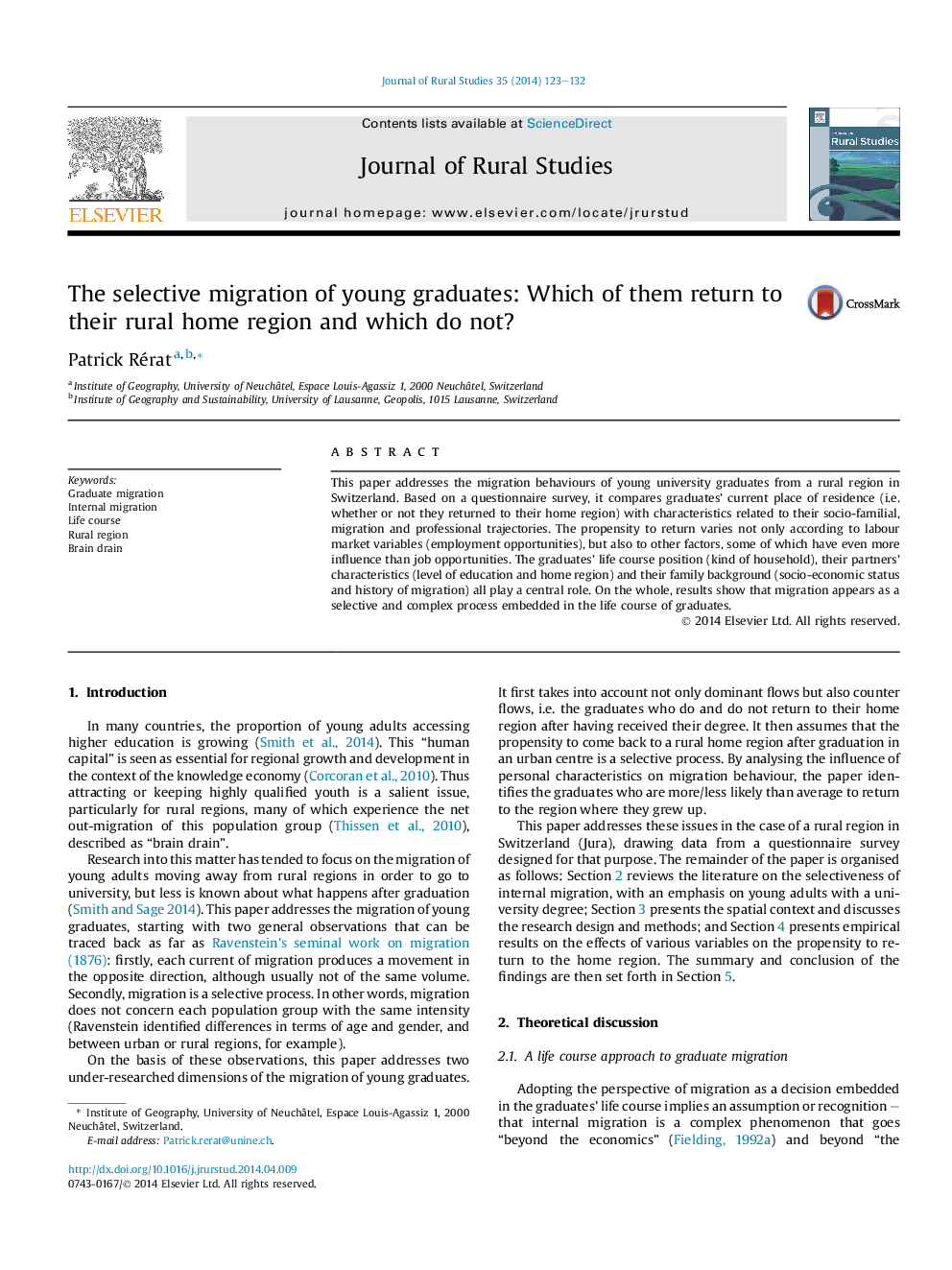| Article ID | Journal | Published Year | Pages | File Type |
|---|---|---|---|---|
| 92491 | Journal of Rural Studies | 2014 | 10 Pages |
•A majority of young university graduates do not return to their rural home region.•Life course approach is needed to understand the varying propensity to return.•It depends on the graduates' socio-familial, migration and professional biography.•Labour market is important in the migration behaviour but is not the only factor.•Life course position as well as partner's and parents' characteristics are central.
This paper addresses the migration behaviours of young university graduates from a rural region in Switzerland. Based on a questionnaire survey, it compares graduates' current place of residence (i.e. whether or not they returned to their home region) with characteristics related to their socio-familial, migration and professional trajectories. The propensity to return varies not only according to labour market variables (employment opportunities), but also to other factors, some of which have even more influence than job opportunities. The graduates' life course position (kind of household), their partners' characteristics (level of education and home region) and their family background (socio-economic status and history of migration) all play a central role. On the whole, results show that migration appears as a selective and complex process embedded in the life course of graduates.
